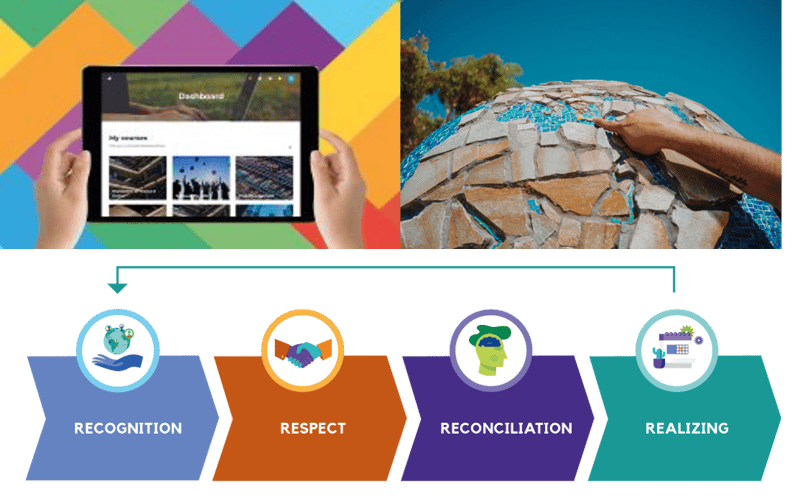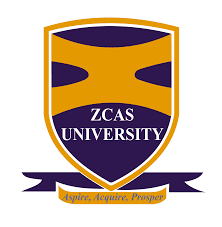In June, we published a new Edubook on the topic of culture and inter-cultural communication.
This Edubook was written by leading experts in inter-cultural communication, Fons Trompenaars and Riana Schreuders. In this feature, we recap on our interview with these Authors, uncovering the motives behind writing it; the differences between this book and similar books on this topic; the concepts and models within it; and who the book is designed for.
Request a Free Sample Copy
MEET THE AUTHORS OF the Culture and Inter-Cultural-Communication Edubook
As a child of a French mother and a Dutch father, Fons Trompenaars was fascinated by culture and cultural differences at an early age. Driven by his fascination, he obtained a PhD from the Wharton School at the University of Pennsylvania. An adaptation of his thesis resulted in the successful publication of the book 'Riding the Waves of Culture', in which more than 200,000 copies were sold in various languages. With his consultancy company THT Consulting, Trompenaars is active in the field of diversity and inclusion, internationalisation, and mergers and acquisitions.
After her studies, Riana Schreuders-van den Bergh worked with Fons as a Consultant at THT Consulting. Riana was born and raised in South Africa and ended up as an exchange student at the Free University of Amsterdam. In the Netherlands she met her husband and after two years of flying up and down the hemispheres, she decided to settle permanently in the Netherlands and has been living there for over 12 years. Riana obtained her PhD at the University of Pretoria in South Africa with a focus on cultural intelligence. After her doctorate she started working at THT Consulting before becoming Assistant Professor at the Hogeschool van Amsterdam in 2014, but she still regularly gives training courses with Fons as well as co-authoring publications. In this case the new Culture and Inter-cultural Edubook for Edumundo, due for publication in late April 2021.
WHAT DO YOU MEAN BY CULTURE AND INTERCULTURAL COMMUNICATION?
"Culture is about the different groups and subgroups we belong to: nationality, gender, generations, jobs, and so on," said Riana. “As humans, we are constantly moving between these different groups and the different roles we play within these groups. And in every new context we fall back on different communication patterns to make ourselves understood.” Fons points out that culture also relates to the way in which groups of people respond to challenges or dilemmas they are confronted with. “These challenges or dilemmas are reflected in some basic themes: how we organise our relationships in a group, how we manage our time and how we deal with the physical environment. Cultures find different solutions to the challenges they face based on factors such as climate, population density, resource availability, and so on. These solutions lead to the fixed behavioural patterns of a group that are passed on from generation to generation.''
WHAT WAS THE REASON for writing this EDUBOOK?
Riana: “As we move between different cultural roles and communication patterns, we need a new paradigm to help us deal with the increasing complexity we face. With this Edubook we want to provide the tools to shape this new paradigm.''
“The world is getting smaller and smaller,” says Fons. “Technology has made it easier to connect with people on the other side of the world without even leaving their living room. Massive, worldwide emigration also brings different cultures into contact with each other. This increases the need for successful cooperation and effective inter-cultural communication. Whether you are pursuing a study or career that crosses borders and cultures, or staying local, it is inevitable that you will have to deal with multiple cultures and nationalities in your daily life. This makes the ability to communicate effectively across cultural lines essential.''
"Whether in your studies or your career, if you stay local or overseas, it is inevitable that you will interact with multiple cultures and nationalities in your daily life."
WHO IS THE EDUBOOK Designed FOR?
According to Fons, this Edubook is intended for anyone who wants to improve their inter-cultural competences. "Whether you are a manager dealing with strategic and organizational issues or a student who is first introduced to communication theories."
Riana: “The Edubook offers the opportunity to explore the depth and breadth of cultural differences in an interactive and comprehensive way. Through theory, cases, video clips and activities, the Edubook provides the tools necessary to improve the inter-cultural competences and communication skills of students and professionals.''
SEVERAL BOOKS HAVE BEEN WRITTEN ABOUT CULTURE and Inter-cultural Communications, how does tHIS EDUBOOK differ from the rest?
Fons indicates that management books on culture typically contain long lists of what you can and can't do for successful interaction.
“It is not uncommon for these books to reinforce cultural stereotypes. They also often leave the student with the message: 'these are the differences and good luck with them in practice'. With this Edubook we want to offer an integrative and practice-oriented approach to culture, in which the competence to combine opposing points of view in new and surprising ways is central.''
Riana states that the Edubook also offers important advantages over a traditional book: “The Edubook is an interactive and digital learning resource in which students can work independently on their cultural competences. Through the Teacher Dashboard, teachers can coach, motivate and provide feedback - ideal in times of Covid-19 and online education. In addition, the content is organised in such a way that you can choose to navigate through it chapter-by-chapter, as in a traditional book, or to cover only the most relevant topics.
Above all, the Edubook is based on more than 30 years' worth of consultancy experience in the field of Cross-Cultural Management.''
"With this Edubook we want to offer an interactive and practical approach to culture, focusing on the ability to engage with other cultures in new and surprising ways."
CAN YOU TELL US MORE ABOUT THE CONTENT OF THE EDUBOOK?
Riana: ''At the core of the Edubook lies the 4-R approach: Recognition, Respect, Reconciliation, Realization. Unlike the more traditional methods, the 4-R approach is explicitly intended to approach cultural differences in an integrative and dynamic way and thereby achieving results greater than the sum of its parts."
“Recognition is the first step of the 4-R approach”, Fons adds. “It's about identifying and understanding cultural values, perspectives, attitudes and behaviours and their implications for effective interactions.
Respect is the second step in the process: it is about realizing the duality of values and the ability to understand and not directly judge the other.
Reconciliation is the third step in the process. It is especially this third step that distinguishes this Edubook from many other books on culture. After all, having respect for the other is not enough to exploit the unique strengths of two different cultures.
Realization is the final step in the 4-R approach and is the process of turning strategies into actionable actions, evaluating success, and taking corrective action to ensure that one stays on track.''
"At the core of the Edubook lies the 4-R Approach: Recognition, Respect, Reconciliation, Realisation"
STEP 3. 'RECONCILIATION' IS VERY IMPORTANT IN THIS PROCESS. CAN YOU TELL US MORE ABOUT THIS?
Fons: “The Cambridge dictionary defines reconciliation as 'the process of making two opposite beliefs, ideas, or situations agree'.
The key to Reconciliation lies in the idea of dilemmas. Two seemingly contradictory values pose a dilemma to be resolved. While traditional culture models often view differences as linear, reconciliation refers to the ability to combine or integrate the opposites to create win-win solutions that go beyond mere compromises.''
Riana emphasizes: “Reconciliation means connecting different points of view without compromising the culture of the other or your own. A good reconciler must, among other things, inspire and listen, make decisions themselves, but also be able to delegate and have the analytical skills to place contributions in a larger context.“
"Humour can also be very important in reconciliation,” Fons adds. “When you put together contradictions that suddenly make sense or do not make sense, this can be very funny. John Cleese once told me a joke in this context: 'There were four prisoners playing cards, one cheated and they threw them out of prison.'"
"While traditional culture models often consider differences as linear, reconciliation refers to the ability to combine or integrate differences to create win-win solutions that go beyond compromises"
HOW CAN TEACHERs BEST SUPPORT STUDENTs IN MASTERING THE 4-R APPROACH?
Riana agrees that this can be a challenge for teachers. “Our Edubook is about guiding students through the process of thinking differently and this really goes much further than standard stereotypes about cultural differences. A first step for a teacher is to explore the Edubook and the associated mindset yourself. As a teacher, if you are well acquainted with the basics, it will soon be easier to take the necessary step from teacher to facilitator/coach.”
Fons connects to this: ''A teacher can also develop the mindset through the 4-R approach to deal better with cultural differences in their own classroom."
WHAT ARE YOUR FUture PLANS?
Fons: “Riana and I are currently working hard to develop a training program for teachers. We want to help teachers to master the 4-R approach and also train them to properly apply the Edubook within their own curriculum. So keep an eye on Edumundo's e-mail messages and website for updates!”


.png?length=300&name=unnamed%20(11).png)
.png?length=300&name=unnamed%20(7).png)
.png?length=300&name=unnamed%20(8).png)
.png?length=300&name=unnamed%20(6).png)

.png?length=300&name=unnamed%20(10).png)
.png?length=300&name=unnamed%20(5).png)
.png?length=300&name=unnamed%20(9).png)
.png?length=300&name=unnamed%20(4).png)
.png?length=300&name=unnamed%20(2).png)
.png?length=300&name=unnamed%20(1).png)
.png?length=300&name=unnamed%20(3).png)
.jpg?length=300&name=unnamed%20(2).jpg)





.png?length=300&name=loughborough-university-logo%20(small).png)





